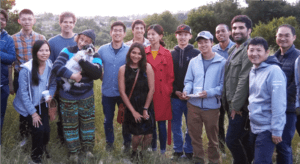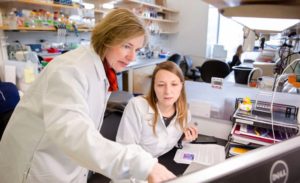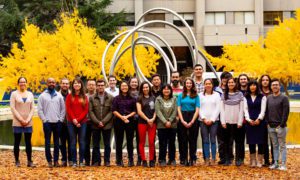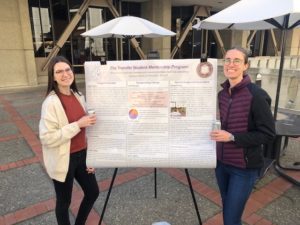
Faculty focus on Irina Conboy
April 28, 2022
QB3-Berkeley interviews faculty affiliate Irina Conboy about her lab’s research on aging.

April 28, 2022
QB3-Berkeley interviews faculty affiliate Irina Conboy about her lab’s research on aging.

April 26, 2022
The day I spoke to Jennifer Doudna was a tough day: the US Patent Office had just ruled against her university on CRISPR’s most important uses, handing the commercial rights to her rivals at the Broad Institute of MIT and Harvard. Doudna is the co-discoverer of CRISPR editing, the revolutionary method for engineering genes that, 10 years…

April 26, 2022
Seth Lieblich, PhD, is a principal at venture capital firm 8VC focusing on life sciences technologies. He joins the QB3-Berkeley Professional in Residence program on May 6th. Lieblich spoke to postdoctoral researcher Elisabeth Gill about his trajectory from academic research to the biotech entrepreneurship ecosystem working in a biotech start-up, consulting, within the business development…

April 22, 2022
QB3-Berkeley seeks a talented, reliable, organized, and design-minded student to join our team as a communications and administrative Assistant. This position will work with QB3-Berkeley’s leadership to help us communicate our research, outreach, programming, and events to the UC Berkeley community and beyond. Undergraduate students who have strong verbal and written communication skills and who…

March 29, 2022
Timothy Day, PhD and UC Berkeley alumnus, is the co-founder and chief scientific officer (CSO) of DNALite Therapeutics. Day will be QB3-Berkeley’s Professional in Residence on April 5, 2022. In an interview with graduate student Leah Gulyas, Day traced his path to entrepreneurship from growing up in Kansas with the goal of pursuing medicine to…

March 16, 2022
Markita del Carpio Landry is an assistant professor in the department of Chemical and Biomolecular Engineering at the University of California, Berkeley, and the principal investigator of the Landry Laboratory, which has pioneered nanotechnologies for in-brain neurotransmitter imaging, and also genetic manipulation in plants. Prof. Landry is also on the scientific advisory board of Terramera and on…

February 25, 2022
March 10th 2022 is Big Give, UC Berkeley’s annual fundraising blitz. Learn how to support QB3-Berkeley this Big Give.

February 23, 2022
While graduate students in the College of Chemistry have long been leading DEI efforts and initiatives to improve the unit’s climate, a new program provides more support and compensation for their work. Academic institutions have recently shifted significantly toward focusing on diversity, equity, and inclusion (DEI). Many departments and colleges at UC Berkeley have shown…
Notifications